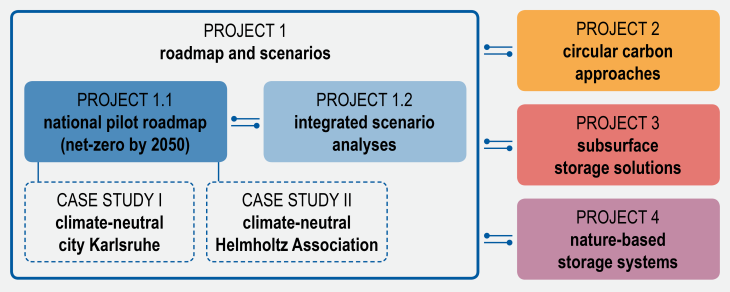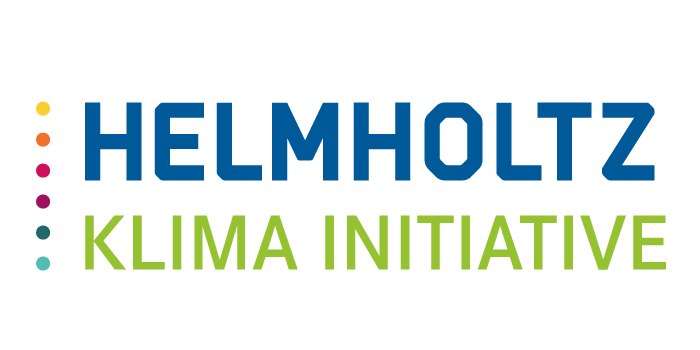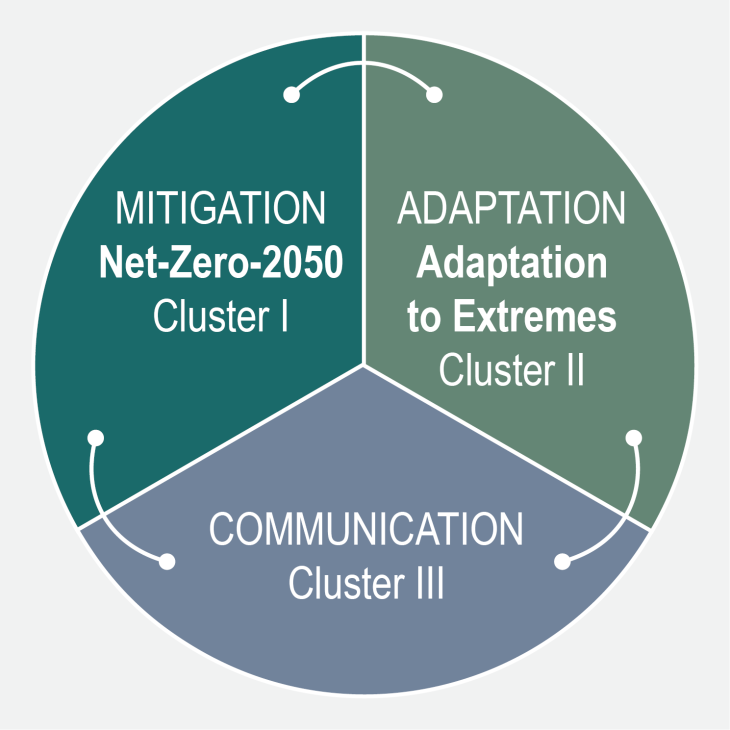Limiting the increase in the global mean temperature to well below 2 degrees C compared to the pre-industrial level is fundamentally possible - this is shown by the IPCC in its special report on 1.5°C global warming.
Important measures are rapid and far-reaching reductions of all greenhouse gas emissions, above all carbon dioxide. In addition, carbon dioxide must be extracted from the atmosphere. It can be stored in natural sinks such as soils and forests, for example. Furthermore, the carbon dioxide extracted from the atmosphere can be converted back into energy sources through chemical processes.
In the first phase of Net-Zero-2050, Cluster I of the Helmholtz Climate Initiative, respective strategies and new approaches were scientifically examined and evaluated in four projects concerning the German framework. In addition, two case studies were carried out with external stakeholders from the field. The project was organised as follows (see figure):

- Project 1 (P1) consisted of two sub-projects and hosted the coordination of the entire project. In P1.1, all the scientific project results (P1 - P4) were brought together in a national pilot roadmap for a CO2 neutral Germany by 2050 and made available to the public in an interactive web atlas. Integrated energy scenarios were developed and analysed in P1.2. Both projects were in close contact to iteratively work out the most promising scenarios and contributions for the pilot roadmap.
- Projects 2 to 4 (P2, P3, P4) represented the cluster’s technological level. In collaboration with P1.1, bottom-up evaluations were performed, regarding systemic, economic, ecological, political, legal and social constraints of CO2 removal and CO2 conversion into products such as synthetic fuels (P2), the storage of various forms of energy and substrates required for CO2 neutral cycles (P3) and the removal of CO2 by natural solutions (P4).
- Case Study I provided a key societal link of Net-Zero-2050. A synthesis of municipal examples and activities as well as relevant initiatives in Germany was created. Due to the coronavirus pandemic, online workshops were held in a modified form for the city of Karlsruhe and further demand-oriented products were created.
- Case Study II aimed at the development of a transparent strategy towards a climate-neutral Helmholtz Association.
Findings were published in the pilot roadmap (Wegweiser, in German) and were further made accessible in a web atlas (Netto-Null-2050 Web-Atlas) and a Soil Carbon App (Woher kommen die Bodenkohlenstoffdaten? | Netto-Null, in German), among other things. By assessing the most promising contributions towards a national net-zero roadmap at the time and by transparently displaying results of research, Net-Zero-2050 aimed to inform and move forward the debate about CO2 neutrality at various levels.
In the second phase, the feasibility of selected recommendations for action were evaluated in three projects (see figure):

Figure 2: Net-Zero-2050 stucture of second phase.
- Project 1 comprised a “reality check” of the results from the first project phase. To this end, experts and stakeholders from the field were interviewed. In addition, the results from projects 2 and 3 were bundled and coordinated.
- Project 2 was technology-focused and related to the direct electrocatalytic conversion of CO2 into fuels and chemicals and evaluated the options and potential of combining temporary subsurface CO2 storage with geothermal heat harvesting.
- Project 3 investigated natural climate solutions and was dedicated to the rewetting of peatlands in the Potsdam region of Brandenburg.
The results were published as a “Reality-Check Report”.
In addition, the Net-Zero-2050 Summer School was held in September 2024 and a continuation of the Net-Zero network beyond the project period is planned.
The project was coordinated by the Climate Service Center Germany (GERICS), Helmholtz-Zentrum Hereon.



